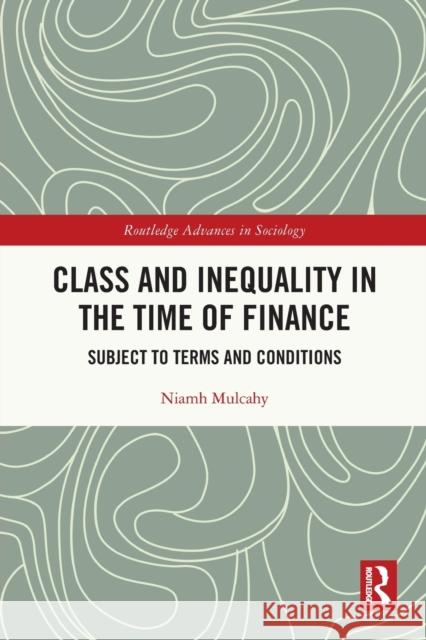Class and Inequality in the Time of Finance: Subject to Terms and Conditions » książka
Class and Inequality in the Time of Finance: Subject to Terms and Conditions
ISBN-13: 9780367531010 / Angielski
Class and Inequality in the Time of Finance: Subject to Terms and Conditions
ISBN-13: 9780367531010 / Angielski
(netto: 206,17 VAT: 5%)
Najniższa cena z 30 dni: 196,40
ok. 30 dni roboczych.
Darmowa dostawa!
This book explores the effects of the gradual liberalisation of capital markets and the expansion of consumer credit on poorer households in the UK, drawing on the thought of Foucault and Althusser to examine the precariousness caused by a lack of savings and a reliance on debt at a time of reorganisation or rollback of government benefits.
This book explores the effects of the gradual liberalisation of capital markets and the expansion of consumer credit on poorer households in the United Kingdom, with particular attention to the precariousness caused by a lack of savings and a reliance on debt. Asking what it means for poorer working individuals and households to be subject to the demands of finance, the author draws on Michel Foucault’s theory of subjectivation as well as Louis Althusser’s interest in class, actively theorising the constraints of low income or precarious work on financial planning, alongside the reorganisation or rollback of government benefits. A contribution to our understanding of the ways in which financial concerns deepen and expand economic inequality, Class and Inequality in the Time of Finance shows how finance stratifies individual subjects rather than simply individualising and separating them. As such, it will appeal to scholars of sociology with interests in neoliberalism, economic austerity, and consumer credit and debt.











